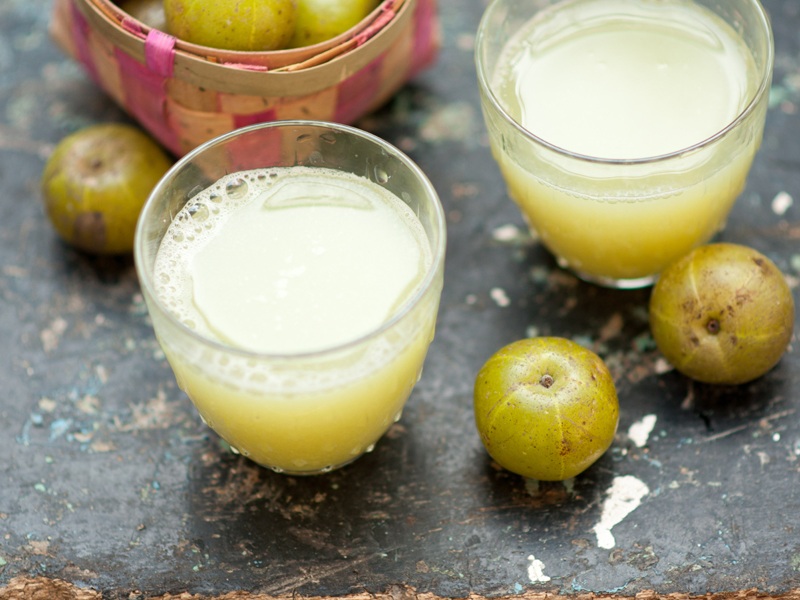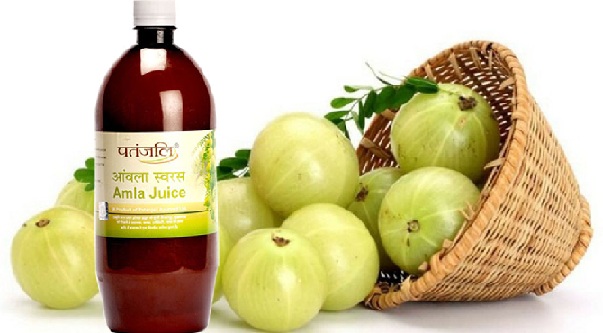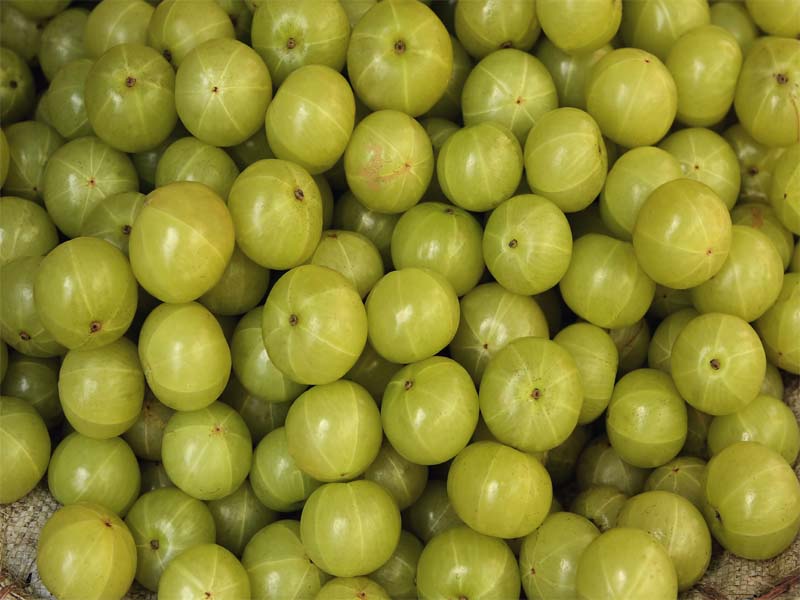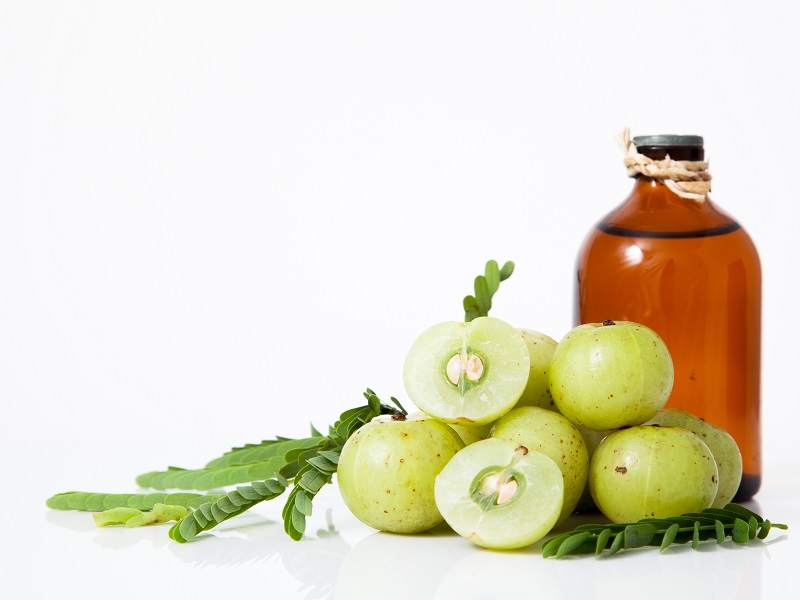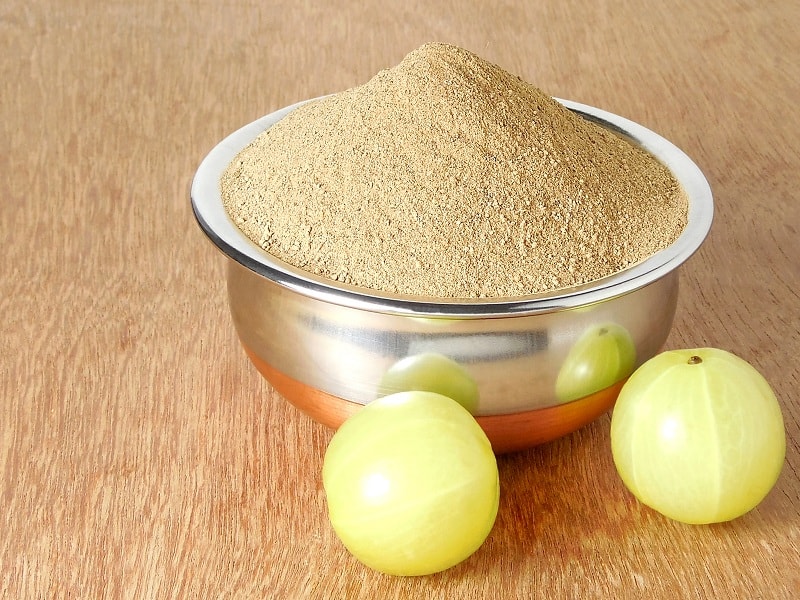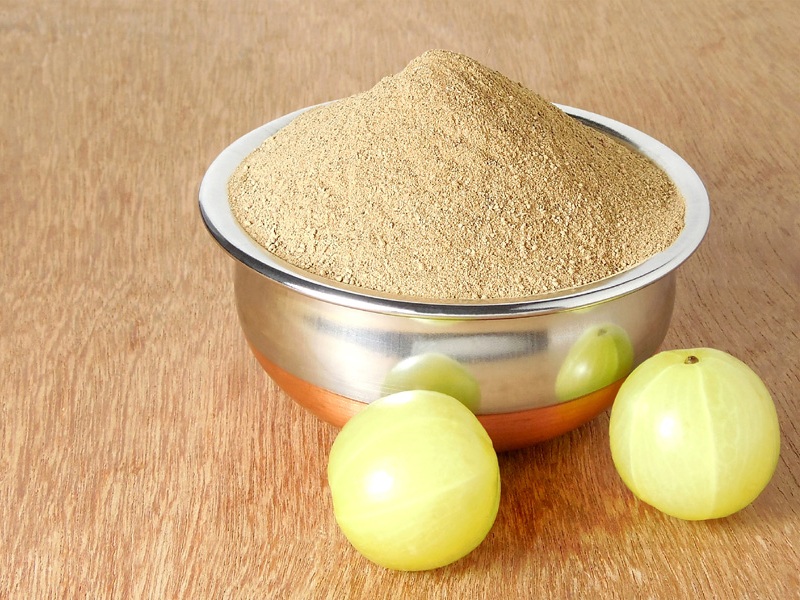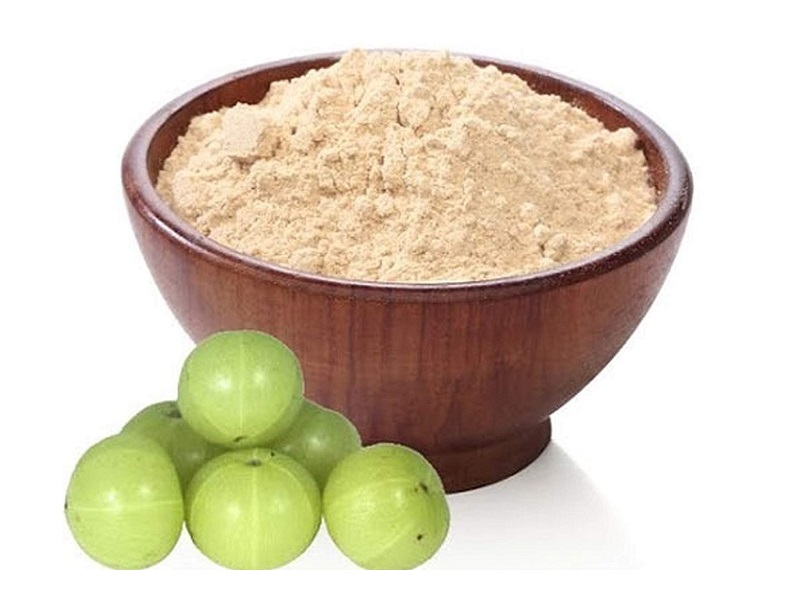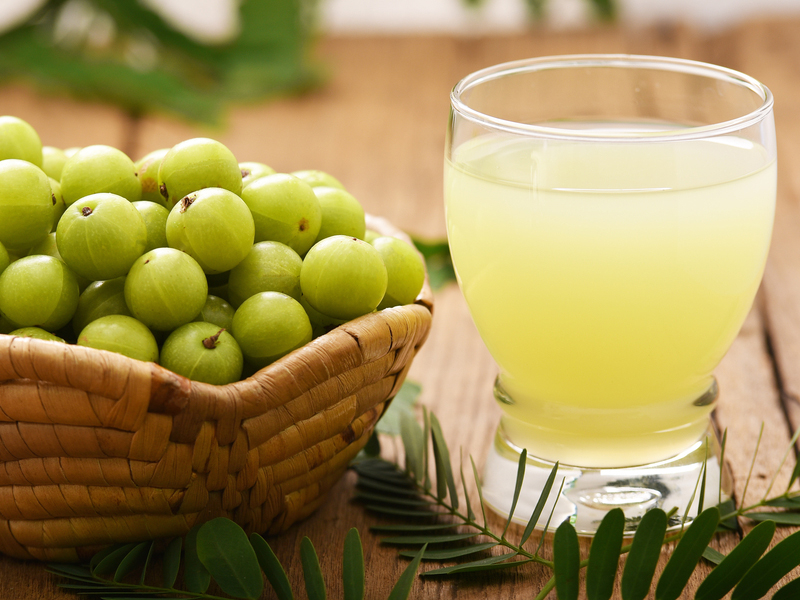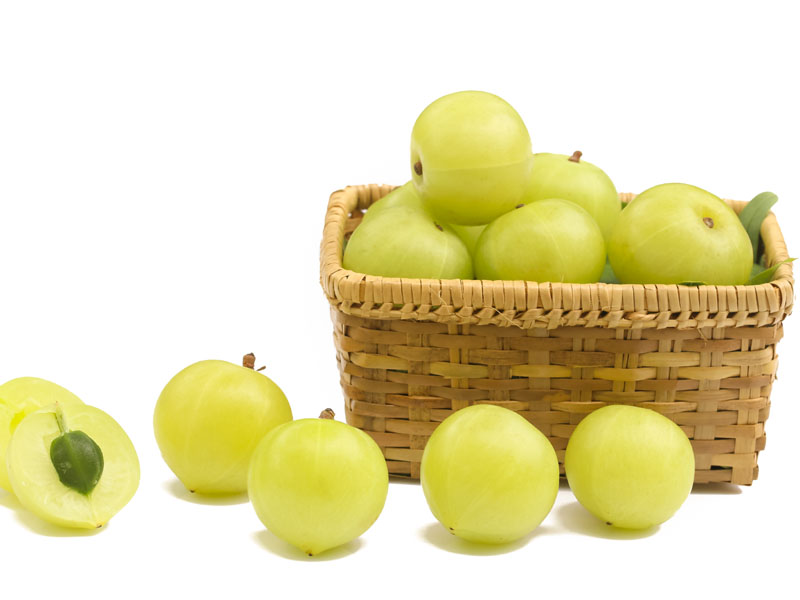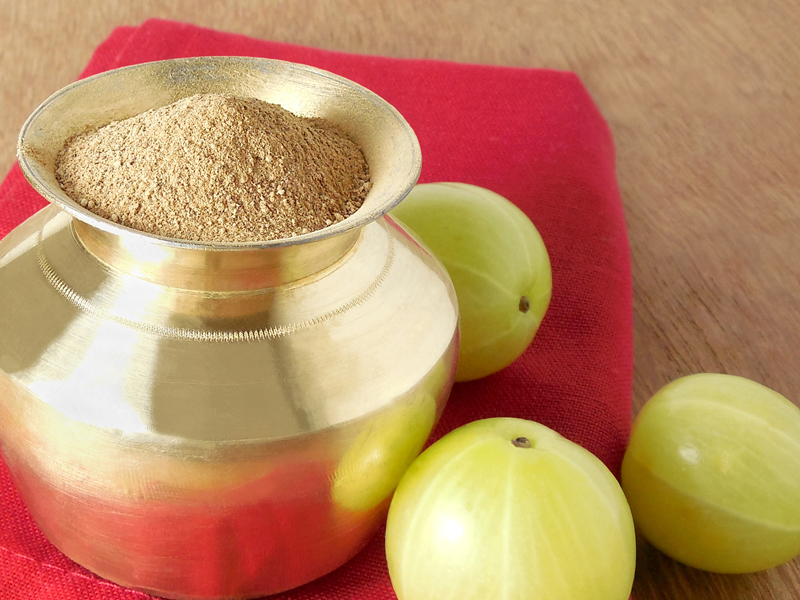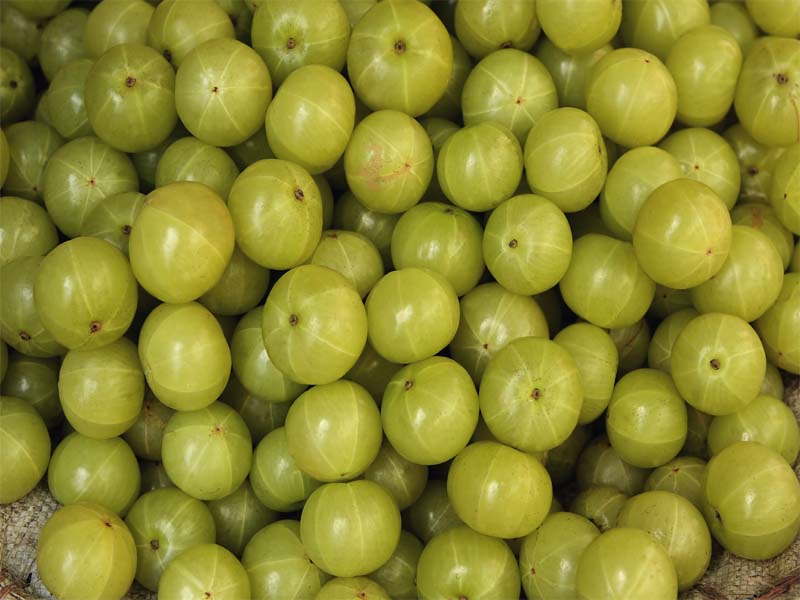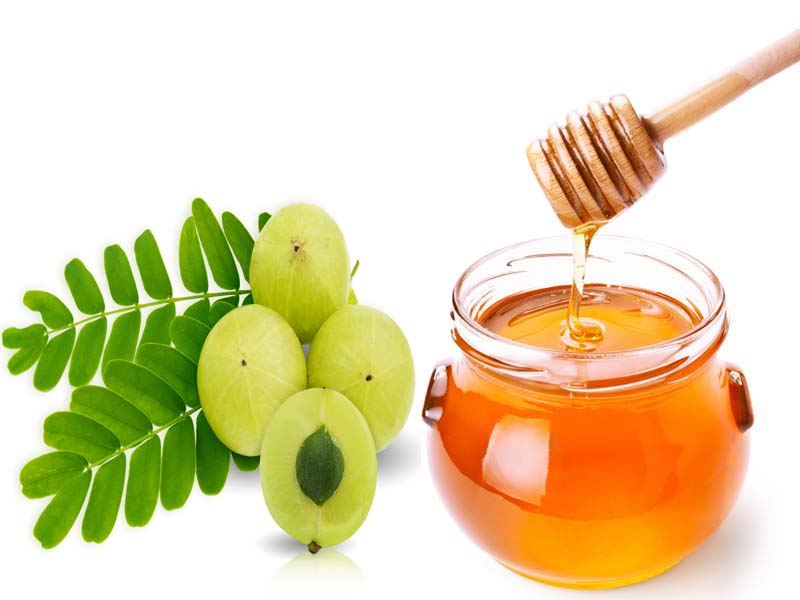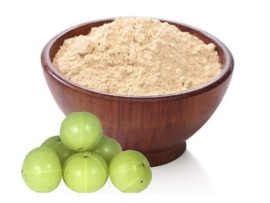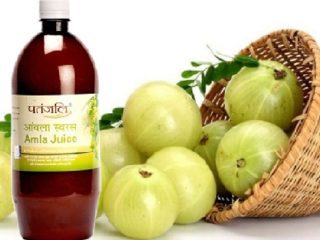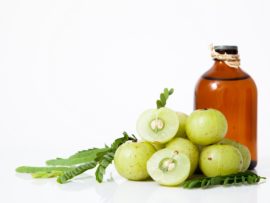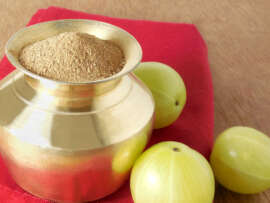Amla or Indian Gooseberry is called a divine fruit in the Ayurveda. This incredible fruit is recognized for its amazing health benefits to mankind. Gooseberry is consumed in forms such as whole fruit, juice, powder and even oil. Amla juice also called Amalaki Juice (Sanskrit), Nellikai Juice (Kannada) and UsiriRasam (Telugu) is often recommended for treating several health ailments, particularly for fighting frequent attacks of bacterial infections. Gooseberry juice is also used for strengthening the respiratory tract and supports the digestive system. However, too much of anything can be bad. A lot of people tend to over-dosage the consumption of Amla juice and end up in unwanted health complications. In this article, we shall discuss amla juice side effects in detail.
Amla Juice Side Effects:
While Amla juice has several health benefits, consuming it more than the recommended 10 ml quantity can pose certain health risks. Read below to know about Indian Gooseberry Juice Side Effects.
1. Stomach Cramps:
One of the commonly experienced amla juice side effects is Stomach cramps. It is often seen that people who consume amla in the form of juice every day to gain health benefits can often suffer from cramps. These can be abdominal and can be very dangerous. If a person is having such problems, they should seek doctor help before consuming this. The high content of vitamin C often causes stomach upset if taken in large quantities.
2. Affecting The Hypertension Levels:
Lowered blood pressure levels can be one of the Nellikai juice side effects. This can be problematic for people suffering from hypertension or stress. Therefore if a person suffers from these problems of stress and other blood pressures, they should consult doctors about the proper dosages and then consume this. Amla is known for lowering blood pressure, so if you are on blood pressure medication, better to consult a doctor before drinking amla juice due to its tendency to lower blood pressure.
3. Excessive Consumption May Cause Diarrhea:
It has been seen that when this is regularly consumed in a small amount with a lot of water, then this can be very good for those people who have bowel problems. However, it has also been seen that if this is consumed in excess, this may cause severe diarrhea. That can need medical attention and can be dangerous. Therefore even though this is natural, still this should be consumed under the right prescription of a medical professional and also under-prescribed dosages. Vitamin C in the amla juice is concentrated and too much of it will cause stomach ache and diarrhea. Pregnant women and babies should avoid amla juice.
4. Diabetes Can Be Affected:
Consuming amla juice is good for health. However, when a person starts to have this, the amount of blood sugar decreases and this can result in hypoglycemia. Therefore it is advisable that people should consume amla juice under the check of the diabetics counsellor who keeps a check on the other medicines that the person already takes regularly and at the same time. Otherwise, the effects may be dangerous and hazardous to health-giving rise to other problems. This should be avoided if a person is already hypoglycemic. Amla juice may interfere with prescribed medication and as it naturally tends lower blood glucose, if you are already taking insulin or tablets, then better to avoid drinking amla juice.
5. Excessive Scalp Conditions:
This is a vitamin-rich fruit. However, increased consumption on a regular basis can cause excessive dryness because the proper intake of 3 to 4 liters of drinking water is also essential. If this is not properly followed, a person can start to see flakes and balding over time due to excessive dryness of the head. The antioxidants and vitamin C whilst beneficial for the body can result in dryness and dandruff if too much is consumed.
6. Allergies and Pimples:
Many people can have itchiness on the face or rashes at the back of ears, elbows. There can be stomach cramps at the same time or any other redness and flakes, this can mean a person is suffering from allergies due to this and should not have this every day. Avoid amla juice and see a doctor if you experience the following as it may mean you are allergic to the fruit: Nausea, swollen, red mouth, itchy red face, hives, difficulty breathing, headaches, dizziness.
7. The Skin May Start To Show Early Signs Of Aging:
It is often seen that consuming the extracts in a liquid form regularly can lead to sagging of the texture. This can make epidermal layers lose its moisture and therefore early signs of ageing can occur due to the diuretic properties.
Therefore it is very important to stay hydrated, making sure you drink at least 2 liters of water daily if you consume amla juice regularly.
8. Can Lead To Cold and Cough:
Another common Amalaki Juice side effects are throat irritation and cough. This is a beneficial thing to keep the body temperature cool and is very good for health when consumed in fewer quantities. This can lead to making the temperature fall and can make the body to catch a seasonal cold and cough. Whilst the vitamin C content in it is good for colds, too much of this juice will lower your body temperature and make your cold or cough worse. Drink it as Triphala by mixing with honey and diluting.
9. Headache and Dizziness:
Amla Juice can have some side effects which can cause a person to feel light-headed. This can mean a person should not use this regularly. A small portion of this can be good. However, a person should check this to a consulting doctor for treating this. The headaches and lightheadedness could be due to the fact, you may allergic to amla. Stop consuming it and see a doctor.
10. Constipation:
Whilst amla juice is very good for stomach problems and constipation, drinking too much especially if it’s concentrated may actually cause constipation. The stools tend to harden thus making it difficult to pass. If drinking juice, ensure it is diluted with water.
11. Dry Skin and Aging:
Amla is rich and vitamin C and antioxidants and taken in the correct quantities it is very good for your skin, keeping free radicals at bay and avoiding infections and rashes. However, too much of these vitamins can have an adverse effect as it dries the skin causing skin dehydration and wrinkles.
12. Hyperacidity:
Again due to large quantities of Vitamin C, the acidity level is high. Consuming too much amla may cause acid reflux within the stomach as well as a burning sensation when passing urine as well as the loss of water and moisture leading to dehydration and sometimes urinary tract infections.
13. Heart Ailments:
If you suffer from any kind of heart condition then it would be wise to avoid too much amla. The fruit acts as stimuli in cardio and whilst there is no evidence suggesting adverse effects, it would be wise to consult a doctor is eating this fruit.
14. Contraindications With Prescribed Medication:
Amla juice may not combine well with prescribed medication due to its many attributes. Avoid taking with Diabetes drugs due to the glucose reducing effect amla has. It also lowers blood pressure to avoid taking if you are on hypertension medication. If you are on medication for the heart such as anticoagulants, avoid amla because it causes bleeding and bruising.
15. Weight Loss:
This, for many, may not be a side effect. However, if amla is consumed in large amounts it dehydrates the body by causing water loss thus triggering weight loss. When the weight loss is sudden, this in itself can cause problems within the body.
16. Side Effects Of Amla Juice During Pregnancy:
While drinking Amla juice during pregnancy is recommended and helpful, crossing the daily allowance can lead to side effects like acid refluxes, stomach burn, vomiting, diarrhoea. It can also lead to lowered blood pressure and may be harmful to the mother. It is always recommended to take a diluted form of Amla juice during pregnancy.
See More: Science Proven Amla Oil Benefits
17. Side Effects Of Amla Juice For Infants:
Amla juice is not recommended for babies below 18 months. There is no establishment of recommended dosage of Amla juice for children of this age group and hence overdose can be possible. Amla juice can trigger stomach disorders, vomiting and even ulcers on tender stomachs. If it needs to be given, add one or two drops in a glass of water.
How Much Amla Juice Is Safe To Consume Per Day?
As per the advice of Ayurveda physicians, the safe allowance of Amla juice per day is 10 ml in adults. Also, it is best to consume diluted Amla juice by mixing 1 part of Amla juice with 2 parts of water. By doing this, you can attain the benefits of Amla juice and also avoid unwanted side effects.
As they say, anything in excess can be fatal! This applies even in the case of Amla juice. Although Amla juice has wonderful benefits, consuming it more than the recommended daily allowance can outweigh its benefits. Situations can worsen when you exceed more than what is advised for you. Also, it is a common practice to take Amla juice on an empty stomach. Doctors advise against this, as it can irritate your stomach and cause stomach burns and ulcers. It is best to consume Amla juice after a meal, mixed with two parts of water. You can also enjoy Amla juice by adding a few drops in your herbal tea for a relaxed body and mind!


